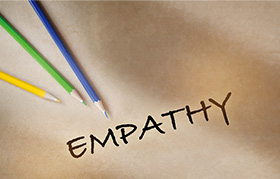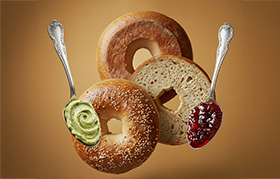
The New Leader in the Running Shoe Market, HOKA
'Ugly Shoes' in the Minimalism Craze
Running for True Running Enthusiasts
Chang Jae-woong | No.397 (July 2024 Issue 2)
Article at a Glance
HOKA, the ‘fastest growing performance footwear brand in history’ has focused on a niche market since its inception: performance running shoes for extreme sports athletes such as trail runners and ultra-marathoners. As a result, it has become synonymous with maximalist running shoes that feature thick cushioning and oversized midsoles. In particular, HOKA has gained a strong fan base by focusing on the running community to promote its products and brand, rather than mass marketing to the general public, and focusing on enthusiasts who truly enjoy running. With the addition of the ugly shoes craze that emerged after 2017 and the running craze that has been growing since the COVID-19 pandemic, HOKA has become a popular brand that threatens global top-tier sneaker brands like Nike and Adidas.
In December 2023, an interesting article appeared in Bloomberg. Edouard Aubin, an apparel analyst at Morgan Stanley, observed more than 250 joggers in New York's Central Park over the course of a day to see what kind of running shoes they were wearing. Interestingly, he found that 19% of the joggers in Central Park were wearing HOKA. Nike, which has been a dominant player in the sneaker industry for years, came in second with 17%. It's a symbolic moment for HOKA, which started as a running shoe startup in France in 2009 and has become a mainstream running shoe company in the U.S. in just 15 years.
In fact, HOKA has recently seen a huge surge in popularity in the U.S., Europe, and Asia. Before 2015, HOKA's revenue was around $70 million, but it jumped to $153.5 million in 2017, surpassing $100 million for the first time, and is expected to reach $1.413 billion by 2023. That's a nearly 10-fold increase in revenue in about a decade. The industry estimates that HOKA's revenue will reach $1.8 billion in 2024.
HOKA's popularity is attributed to its superior comfort and running-specific features. In fact, from the beginning, HOKA focused on developing functional running shoes for professional trail runners (mountain marathoners) rather than fashionable sneakers for the general public, and as a result, HOKA became synonymous with maximalist running shoes with thick cushioning and oversized midsole. Especially, HOKA refers to its customers as "movers" and focuses on genuine running enthusiasts rather than creating generic products for the general public. By promoting its products and brand primarily within the running community, HOKA has built a solid fan base. It also added authenticity to its brand by sponsoring elite athletes with stories and using them as ambassadors, such as black, female, and athletes with disabilities, when Nike and Adidas have been known to heroize sports superstars.
HOKA, the ‘fastest growing performance footwear brand in history’ has focused on a niche market since its inception: performance running shoes for extreme sports athletes such as trail runners and ultra-marathoners. As a result, it has become synonymous with maximalist running shoes that feature thick cushioning and oversized midsoles. In particular, HOKA has gained a strong fan base by focusing on the running community to promote its products and brand, rather than mass marketing to the general public, and focusing on enthusiasts who truly enjoy running. With the addition of the ugly shoes craze that emerged after 2017 and the running craze that has been growing since the COVID-19 pandemic, HOKA has become a popular brand that threatens global top-tier sneaker brands like Nike and Adidas.
In December 2023, an interesting article appeared in Bloomberg. Edouard Aubin, an apparel analyst at Morgan Stanley, observed more than 250 joggers in New York's Central Park over the course of a day to see what kind of running shoes they were wearing. Interestingly, he found that 19% of the joggers in Central Park were wearing HOKA. Nike, which has been a dominant player in the sneaker industry for years, came in second with 17%. It's a symbolic moment for HOKA, which started as a running shoe startup in France in 2009 and has become a mainstream running shoe company in the U.S. in just 15 years.
In fact, HOKA has recently seen a huge surge in popularity in the U.S., Europe, and Asia. Before 2015, HOKA's revenue was around $70 million, but it jumped to $153.5 million in 2017, surpassing $100 million for the first time, and is expected to reach $1.413 billion by 2023. That's a nearly 10-fold increase in revenue in about a decade. The industry estimates that HOKA's revenue will reach $1.8 billion in 2024.
HOKA's popularity is attributed to its superior comfort and running-specific features. In fact, from the beginning, HOKA focused on developing functional running shoes for professional trail runners (mountain marathoners) rather than fashionable sneakers for the general public, and as a result, HOKA became synonymous with maximalist running shoes with thick cushioning and oversized midsole. Especially, HOKA refers to its customers as "movers" and focuses on genuine running enthusiasts rather than creating generic products for the general public. By promoting its products and brand primarily within the running community, HOKA has built a solid fan base. It also added authenticity to its brand by sponsoring elite athletes with stories and using them as ambassadors, such as black, female, and athletes with disabilities, when Nike and Adidas have been known to heroize sports superstars.
15,000개의 아티클을 제대로 즐기는 방법
가입하면, 한 달 무료!
걱정마세요. 언제든 해지 가능합니다.
- This content was originally written in Korean in the DBR, and translated into English by the original author with the aid of AI
- The DBR has all legal authority over this content. Please note that unauthorized use and distribution may be subject to legal sanctions

Copyright Ⓒ 동아비즈니스리뷰. All rights reserved. 무단 전재, 재배포 및 AI학습 이용 금지
인기기사
 경제·경영 질문은
경제·경영 질문은
Askbiz에게 물어보세요
K-FOCUS TOP 5
K-Business Trends to Watch
회원 가입만 해도, DBR 월정액 서비스 첫 달 무료!
15,000여 건의 DBR 콘텐츠를 무제한으로 이용하세요.











